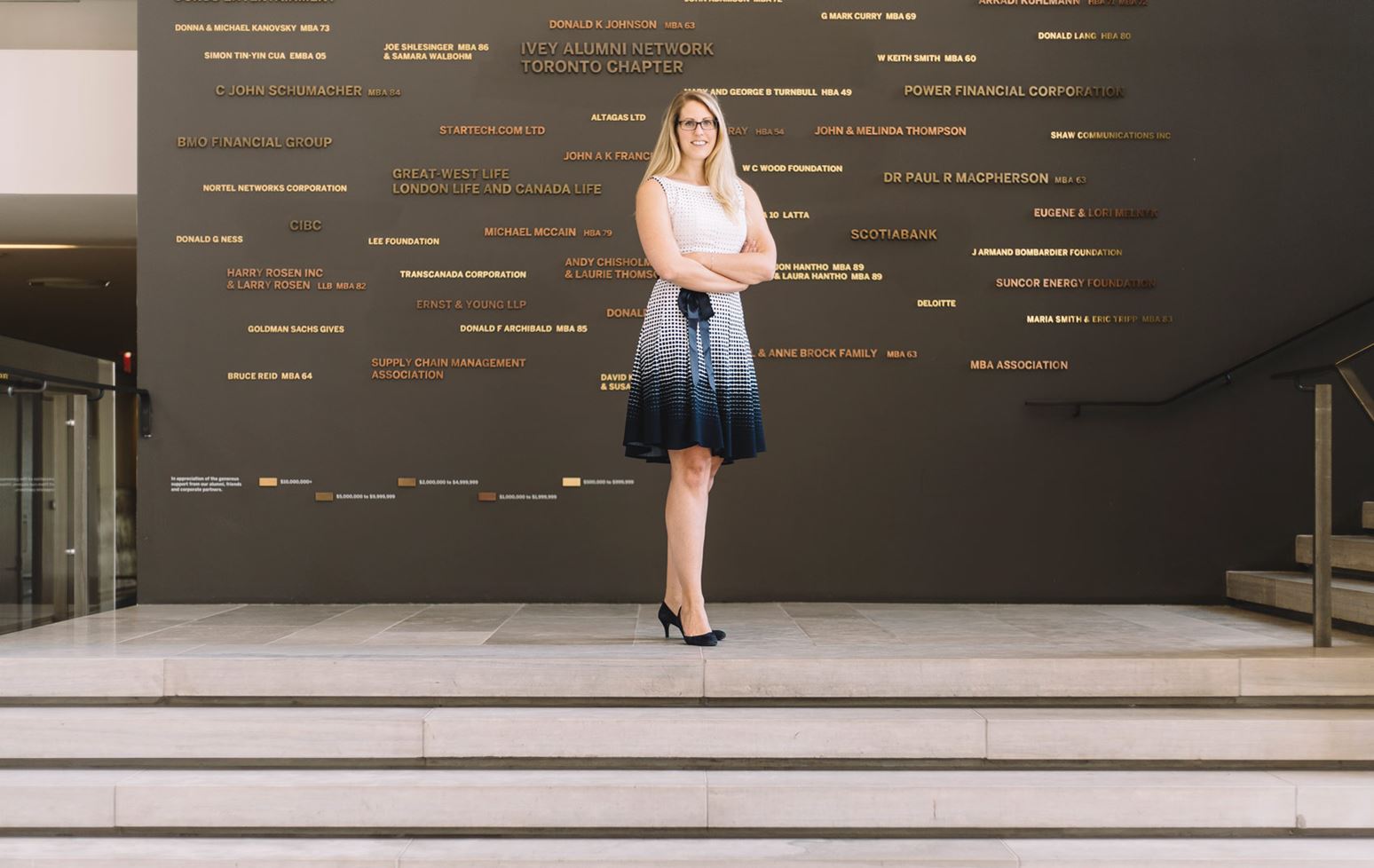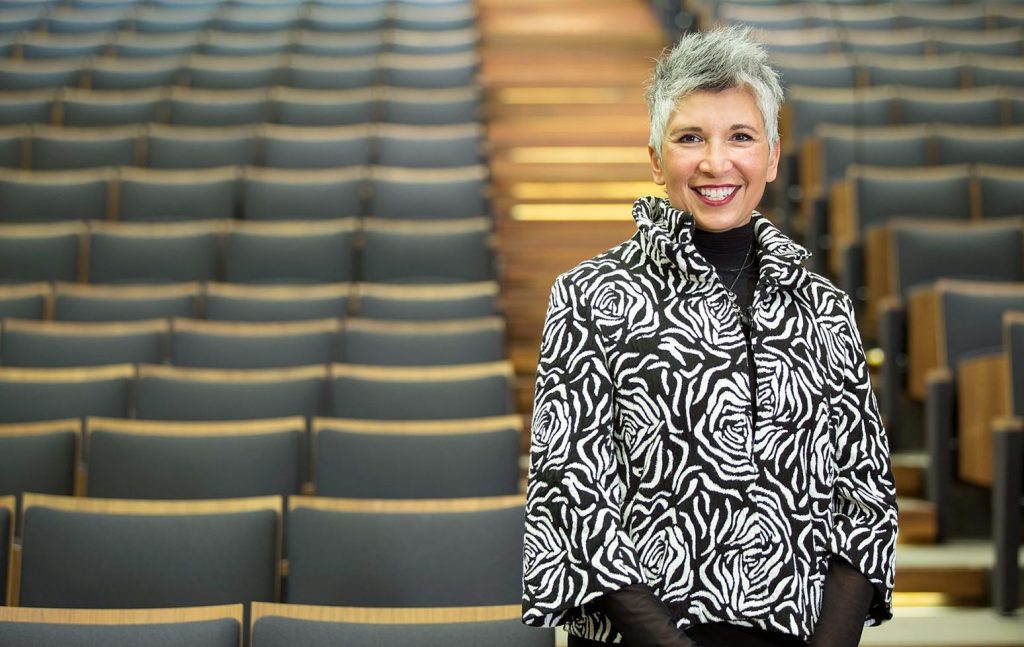Ivey Promoting Women in Business, and More – Toronto News

It has been an exciting week for Toronto’s top business schools. Below, we’ve laid out some of the week’s highlights.
Business-Women: Forging A Path From Campus to Community – Western Gazette
Western University student Alina Huang started the business Illuminate, which provides resources for high schoolers aspiring to be entrepreneurs. Illuminate has partnered with Western University’s Ivey Business School, as well as Deloitte and Concentra Bank. Though she uses “white, male aliases” to avoid bias in her online business, she has found Western’s environment nurturing and inclusive.
In fact, Western offers Propel, an “accelerator and co-working space” that “offers entrepreneurs an inclusive space with mentorship, resources and potential for product testing on the student market.”
You can read more about Huang and Western’s approach to inclusivity here.
What Sector Is Brewing the Next Financial Crisis? – The Insurance & Investment Journal
The Insurance and Investment Journal recently featured an article which referenced a forum held at the University of Toronto Rotman School of Management last March. The forum featured Richard Sylla, Stern School of Business professor, who posited that there will be another financial crisis, as has been the pattern for nearly 300 years.

“In the build-up to a crisis … the Cassandras of the world – those who warned against it and financial historians like me – were shooed away and told: this time it’s different.”-Richard Sylla
Sylla suggested that financial crises can create their own opportunities, including profit for those who correctly predict the upcoming changes while other investors remain unaware. Crises can also lead to technological advances meant to prevent whatever has caused the crisis from recurring.
Read more about Sylla’s insight at the Rotman forum here.
Honorary Degree Recipient is All About Giving Back – Schulich News
This week, Dr. Narendra Singh, who graduated from York University’s Schulich School of Business with an EMBA in 2017, was awarded an Honorary Doctor of Laws. The Schulich grad practiced pediatric and neonatal healthcare around the world. In 2009, he founded Guyana Help The Kids (GHTK), which has markedly increased Guyana’s prenatal care resources.
“I’m receiving this Honorary Doctor of Laws, but I’m somewhat conflicted since my success is the combined effort of many people, some in the audience today, and so I would like to share this degree with them,” Singh says.
You can read more about Singh here.
Schulich Announces New Supply Chain Management and Infrastructure Programs

A business school that isn’t constantly and consistently looking for ways to increase its presence and offerings is one that is falling behind. The goal of every business school is to fill gaps in the economy and society by training up the next and current generation of experts. As part of that effort, York University’s Schulich School of Business announced the launch of two new programs: the Master of Supply Chain Management degree and the G7 Global Development Initiative. Continue reading…
Toronto News: Schulich Grad Becomes CEO, Ryerson Promotes Women in Business, and more…

Toronto business schools have seen another exciting week of community contributions from faculty and graduates. We’ve laid out some of the high points.
We Need to Talk About Career Gaps—LinkedIn
This week, Rod Bolger wrote an article for LinkedIn on the “RBC Opt-In: Women’s Career Continuation Program: at Ryerson University’s Ted Rogers School of Management. The article’s author is also the CFO of RBC, the company that sponsors this program. The Opt-In program allows women who have stepped away from their careers to continue their education and regain their footing in the workforce. The program allows these women to network and further their education on topics like leadership and personal branding.
“At RBC, we believe an inclusive workforce spurs innovation, and that in turn fosters a strong economy and helps our communities prosper. The bottom line: we need women—as half of the world’s talent pool—to be able to fully participate in the workforce. We can each do our part to listen and learn from those who have the diversity of perspective and experience that a career gap brings.” -Rod Bolger
Read more about the RBC Opt-In: Women’s Career Continuation Program here.
Sprout Wellness Appoints New CEO—HRT News Desk
Sprout Wellness Solutions, which provides resources for ensuring holistic employee wellness in corporate settings, has announced that Andrew Zimakas will take over as CEO. Zimakas has been serving as interim COO at the company for a number of months. Zimakas earned his MBA at York University’s Schulich School of Business. After earning his MBA, he worked in senior positions at several large companies, including Microsoft and LoyaltyOne.
“I’m incredibly excited to be leading such a talented and committed team at Sprout; It’s a great fit, given that we are a purpose-driven organization with a leading-edge solution that is at the intersection of two of my passion areas: technology and health and wellness.”- Andrew Zimakas
Read more about Sprout Wellness Solutions here.
China Poised to Take Lead in Artificial Intelligence Race—The Globe and Mail
Avi Goldfarb and Daniel Trefler, economists at the University of Toronto’s Rotman School of Management, have written a soon-to-be-published paper tackling questions about AI’s impact on the future of international trade. The researchers note that China is fast becoming an AI giant with Silicon Valley-level tech advances and growth.
Though the researchers believe China’s innovations will be useful to Canada, they also anticipate harmful consequences as a result of China’s rise to AI superpower. For example, there may be no room for AI companies from smaller countries like Canada once China achieves dominance.
Read more about China’s role in AI here.
Schulich Professor Honored, and More – Toronto News

This week has seen strides for Toronto’s business schools, so lets take a look at some of the highlights.
Serving the Public Good – Corporate Knights
Ed Waitzer, professor at the Osgoode Hall Law School and York University’s Schulich School of Business in Toronto, is the newest recipient if the Corporate Knights Award of Distinction.
In addition to teaching corporate law at York University’s Schulich School of Business, Waitzer is on the advisory board of the Pontificia Universidad Católica de Chile’s corporate governance centre, and frequent lecturer at various universities. At 64, Waitzer remains active and continues to challenge his students and peers to question “compliance mentality,” and decipher what it means to do the right thing in any given situation.
“Ed has spent much of his life advancing the legal foundations for corporations and pension funds to better serve the public good. He’s brought a high level of credibility to interpreting a complex body of law in ways that expand the concept of fiduciary responsibility and allow business leaders to use their power to better serve the interests of a wide range of stakeholders. He makes it less possible for a corporate or pension board to shut down, say, discussions about blackballing child labour or coal because, ‘We have a fiduciary duty to our shareholders.’” -Toby Heaps, Corporate Knights CEO and Publisher.
Learn more about Waitzer’s life and career here.
Ivey MBA Association Welcomes New President – News@Ivey
Western University Canada’s Ivey Business School’s MBA association has elected Marika Marty as its president. Marty was elected by the MBA class of 2019 and will be the first president the association has seen in over 15 years. As president, Marty will represent the student body and facility unity in her class.

Marika Marty, ’19 MBA / Photo via ivey.uwo.ca
The new MBAA said that initially she put off even applying for her MBA for years, thinking that she would have to choose between a career and a family. However, she soon realized this thinking was flawed and chose to challenge herself. “As women, sometimes we sell ourselves short. Being able to embrace opportunity is the real challenge,” Marty said.
Read more about Ivey MBAA’s new president here.
The Debate In Canada Over Paying Plasma Donors – Policy Options Politics
In a recent article in Policy Options Politics, the need for plasma and the choices facing policy-makers has come to a face.
The paper—co-written by Nicola Lacetera, associate professor at the University of Toronto’s Rotman School of Management, and Mario Macis, associate professor at Johns Hopkins University’s Carey Business School—notes that over 80 percent of plasma used to treat patients in Canada is brought in from the U.S. Both the US and Germany can provide a significant amount of plasma, as their laws allow for the creation of private collection establishments as well as compensating donors for the time commitment and discomfort that accompanies donation, but the majority of Canadian provinces prohibit the payment of donors and establishing for-profit collection centers.
In the exploration of the issue, Lacetera and Macis cite the problems with paying plasma donors as well as the benefits (greater incentive to donate, thus less reliance on foreign imports). For example, paying donors could lead to an increase in tainted donations from people who are not healthy, and are just trying to earn money quickly.
Read more about options for increasing domestic plasma donation in Canada here.
Ivey Professor Honored, and More – Toronto News

Professors from some of the Toronto metro’s finest business schools have littered (definitely not literally, in the case of environmental education pioneer Tima Bansal) news headlines this week. Let’s take a look at some of the highlights.
Ivey Professor Tima Bansal Honored for Innovative Teaching – News@Ivey
Tima Bansal, professor at Western University Canada’s Ivey Business School, has been tapped to receive an Ideas Worth Teaching award. During her time as Director of both the Network for Business Sustainability and the Centre for Building Sustainable Value, Dr. Bansal has integrated sustainability into every part of Ivey’s MBA experience.
Where many programs have sustainability electives, Dr. Bansal has elected to co-teach the core MBA courses, so that sustainability practices are not seen as separate from the fundamentals of business education. Bansal was one of 20 winners who will be honored at Working Towards Shared Prosperity: An Academic-Executive Dialogue in Ann Arbor, Michigan this October.

Professor Bansal / Photo via ivey.uwo.ca
Read more about Dr. Bansal’s teaching methods here.
Behavioral Economics Expert at University of Toronto’s Rotman School Receives A Canada Research Chair – EurekAlert!
The Canadian government has announced that Dilip Soman, professor of marketing at University of Toronto’s Rotman School of Management, will serve as the Canada Research Chair in Behavioral Science and Economics. Soman is the Director of Behavioral Economics in Action at Rotman (BEAR), wherein he supervises the use of research findings to help tackle social problems. A recent press release detailed Soman’s work, saying:
“Prof. Soman is a world leading researcher in the area of behavioural economics and its applications to consumer wellbeing, marketing and policy. His work combines insights from psychology and economics to better understand how individuals make decisions.”
As a Canada Research Chair, Soman will have the opportunity to aid in and supervise important research and help train future leaders who show promise.
You can read more about professor Soman here.
How Our Collective Narcissism Explains Everything from Trump and Brexit to China’s Rising Dominance – The Globe and Mail
The Globe and Mail recently released an article that featured research from Russell Belk, a marketing professor at York University’s Schulich School of Business. Belk’s paper, which was published in the Markets, Globalization & Development Review, focused on the theory of “collective narcissism” as it pertains to current world events.
According to Dr. Belk’s work, the nationalistic collective narcissism that led to the Brexit vote in the UK, President Trump’s 2016 election in the United States, and China’s rising global presence is rooted in the belief that others are impeding a nation’s potential for greatness.
“Brexit and the election of Trump both relied on a particular type of nationalistic appeal to collective narcissism—an exaggerated emotional belief that the nation’s greatness is being undermined by other nations and other people. This tendency is catered to by appeals to make the nation great again by shutting borders and embracing isolationism while scapegoating refugees and immigrants. The rise of jingoistic leaders like Trump, Putin, and Erdogan can be explained by such appeals.”
Dr. Belk also explains that China’s move toward globalism is also tied to collective narcissism, as the country is expanding its reach while “rejecting multiculturalism.”
Read more about Dr. Belk’s paper here.
What are the Best Healthcare MBA Degrees in Toronto?

The Toronto metro is not only home to a number of the finest business schools in Canada—it is is one of the top cities in North America for healthcare and human health sciences. According to the City of Toronto, the city’s life sciences sector employs nearly 30,000 professional and contributes more than $2 billion to the local economy. In a word, Toronto healthcare is huge.
